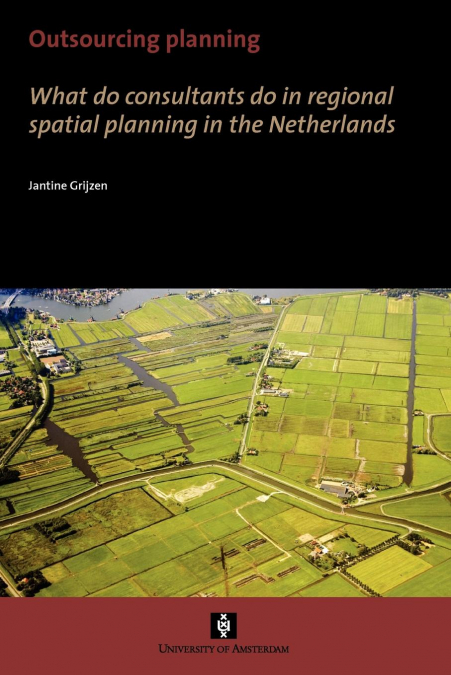
 Librería Perelló (Valencia)
Librería Perelló (Valencia)
 Librería Aciertas (Toledo)
Librería Aciertas (Toledo)
 Librería Elías (Asturias)
Librería Elías (Asturias)
 Donde los libros
Donde los libros
 El AlmaZen del Alquimista (Sevilla)
El AlmaZen del Alquimista (Sevilla)
 Librería Kolima (Madrid)
Librería Kolima (Madrid)
 Librería Proteo (Málaga)
Librería Proteo (Málaga)
This thesis addresses the wide involvement of consultants in regional spatial planning projects in the Netherlands. Although consultants have become important actors in public policy making, and media and politics have frequently addressed this as a problem, until now the scientific literature has paid little attention to them. This thesis shows that the wide involvement of consultants can best be explained from the perspective of increasing problems of coordination and cooperation in Dutch regional spatial planning. Planning has become an activity performed by many governments and stakeholders together, with overlapping policies, expertise and procedures. From an external position, consultants can act as intermediaries between interdependent actors, both by mediating between personal relations as well as by connecting substantive issues. Hiring consultants, however, is also a sign of emptying out governments; when governments outsource core tasks like policy articulation and cooperation with other governments, they can loose the capability to develop high quality and democratic plans in a complex and interdependent world